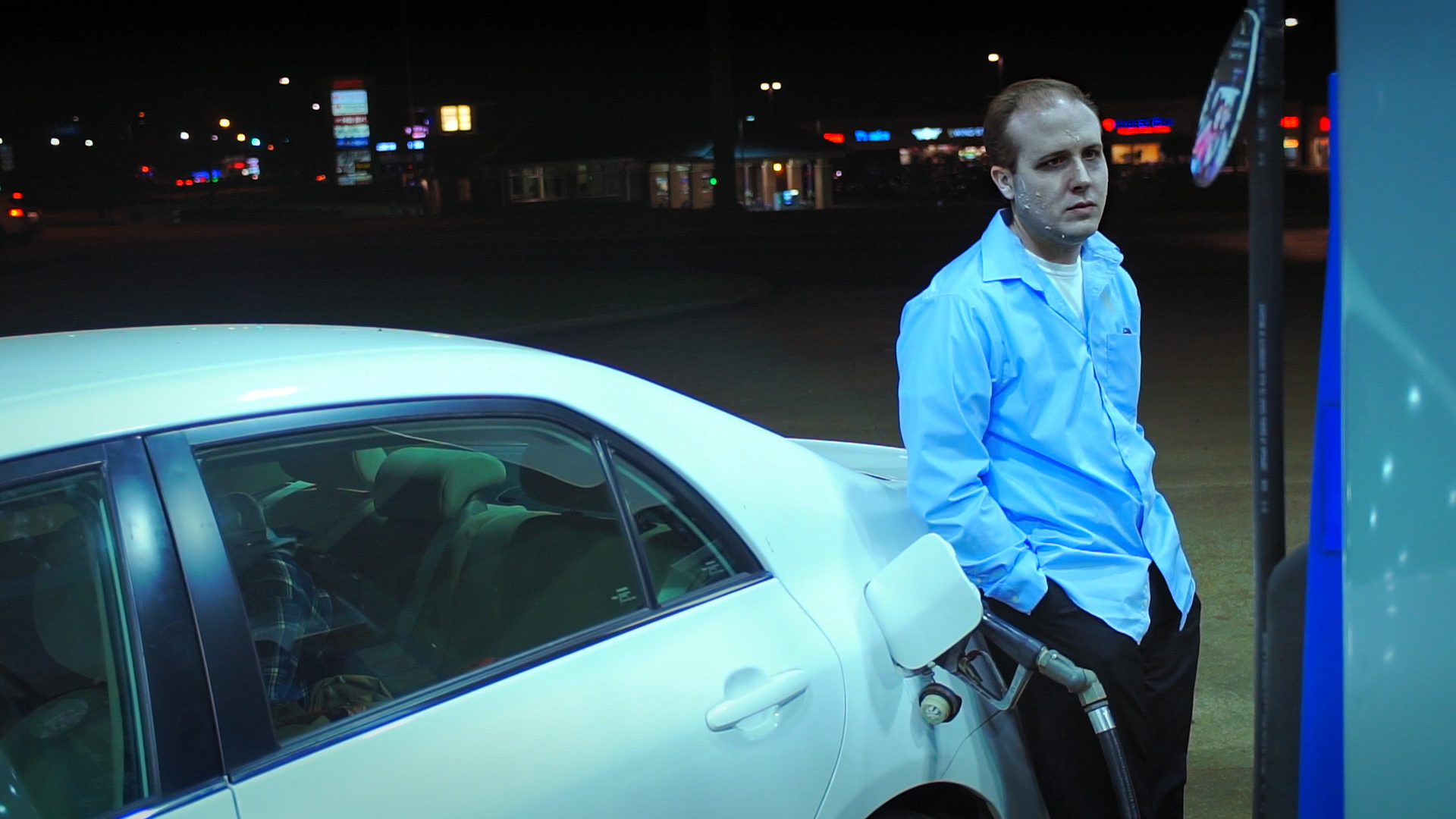
Often times, absurdity best underscores a point. Satire has long played an integral part in helping us to analyze the world around us and make sense of the issues that plague our society. One such film uses America’s decades long fascination with zombies to do the same.
What Doesn’t Kill Us is a mockumentary from directors Zach Schlapkohl, Jacob Kiesling, Ethan Cartwright that follows four East Texans, Keith (Peyton Paulette), Jeremy (Richard Scott Jr.), Bridgett (Tevia Loeser), and Sara (Christian Hopson) in a world that has suffered from a virus that turned those infected into zombies. The film focuses on the adversities they face that come with living in a time when necrosapiens (the politically correct term for zombies) aren’t yet considered socially equal to homosapiens. The source of zombification in the film is eerily prescient for where our world stands currently just a few shorts years after the time period in which the film is set. After enterprising Texas restaurateur Rooster Johnson illegally imports a pufferfish/poisonous fugu hybrid bred by a Japanese chef in an attempt to get on the ground floor of the new dish, the unexpected side effect is a virus dubbed the Fugu Plague that turns humans into zombies.
What Doesn’t Kill Us cleverly uses satire to explore the realities of race, prejudice, political correctness, and how minorities are treated within our own society through the fictional struggles of necrosapiens. What the film does well is use comedy and the absurdity of zombification to illustrate the point that all people have the same hopes, dreams, desires, and fears no matter what their background or origins. Watching the humorous take on zombies trying to make their way in the world whether it’s by beginning a family or working toward career goals, everyone just wants to feel as if they matter in the larger scheme and that their path on the pursuit of happiness has as much of a chance of success as those around them.
The comedy in the film is well done, with My Daughter Kills Me, the fictional sitcom full of necrosapien stereotypes and punchlines being a highlight. The in-universe show is indicative of the kind of satirical nature of the film, mirroring the quest for proper, authentic representation that underrepresented groups still strive for in real life. The mockumentary, The Office type feel of the film should provide a familiar comfort for viewers and allow them to fall comfortably in the groove of what the filmmakers are shooting toward.
Tevia Loeser’s performance as Bridgett the earnest campaign manager stands out in What Doesn’t Kill Us as she nails the type-A, aspiring politico type whose zeal is both grating and funny to see if it’s not directed toward you. Peyton Paulette does well as Keith, the everyman suburban husband who just wants to his slice of Americana but must overcome social prejudice in order to reach the heights he aspires to. Paulette is able to impart the emotionality of the character and his journey, supplying much of the weight behind the allegory of the film. What Doesn’t Kill Us serves as a reminder of the power of satire and of indie filmmaking.


Thank you so much for sharing your thoughts, Garrett!